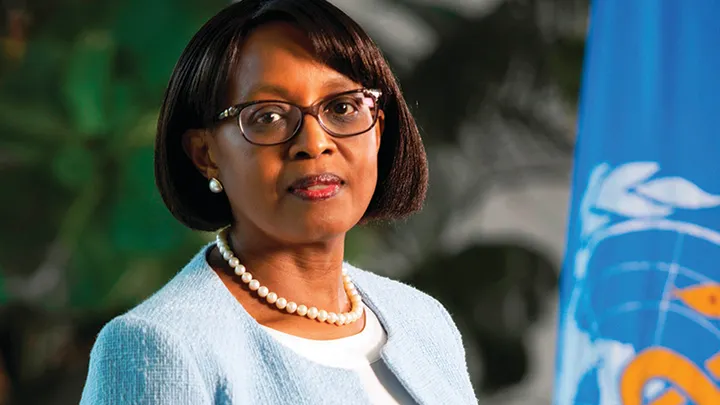By Zayamu Hassan
The World Health Organisation (WHO) has called on governments and political leaders in the African continent to provide adequate human and financial resources to national blood transfusion services.
The WHO Region Director for Africa, Dr Matshidiso Moeti, gave the charge in a message to mark the year 2022 World Blood Donor Day.
This year’s theme, ‘Donating blood is an act of solidarity’. Join the effort and save lives, highlights the critical role of voluntary blood donations in saving lives, and enhancing community solidarity and social cohesion.
She insisted that: “A blood service that gives patients access to safe blood and blood products, in sufficient quantities, is a key component of an effective health system.”
While calling on stakeholders including religious and traditional leaders to get involved in the mobilization of voluntary blood donors, the WHO said: “Seeking out opportunities for partnerships and collaborations with media, the private sector, and faith-based and non-governmental organizations, will help increase the recruitment and retention of voluntary unpaid blood donors.”
Dr Moeti, however, applauded Africa’s blood donors for their selfless contribution to national health systems, through this life-saving gift to patients who need transfusion therapy.
“I also want to acknowledge the tireless efforts of blood services staff who are deeply committed to maintaining critical blood supplies, of the research and development professionals pursuing new technologies and uses for donated blood, as well as the medical teams who use blood rationally to save lives.
“Donating blood is an act of solidarity. By becoming a blood donor, you will help ease the pressure on health systems still struggling under the burden of the COVID-19 pandemic,” she stressed.
Dr. Moeti reiterated that WHO in the African Region provides support to countries at various levels, including resource mobilization for the implementation of national blood transfusion plans, advocacy for integrating blood safety in these plans, and strengthening the legal and regulatory framework for blood safety.
The statement noted that the African Region sees a disproportionate number of conditions requiring donor blood, impacting as many as seven million patients every year.
The WHO, however, lamented that while the need for donor blood is universal, access for everyone who needs it is not.
“In the African Region, demand regularly outstrips supply, negatively impacting timely access for all patients who need safe and quality-assured blood to save their lives.
“As a consequence of the COVID-19 pandemic, voluntary unpaid blood donations dropped significantly. Malawi, for example, registered a 46% decrease in donations.
“Countries across the African Region have worked hard to improve blood donation frequency, and the situation is showing signs of stabilizing.
“Blood transfusion services in many countries reached out to blood donors through public awareness campaigns, transporting donors from and to their homes, using digital platforms and establishing call centres.
“The situation remains challenging, and it is exacerbated by issues such as staff shortages and limited funding from governments and partners organizations for effective blood donor education, recruitment, and retention.”
The World Blood donor day is being celebrated on June 14 every year. It is a day when the global community focuses on the gift of life from voluntary unpaid blood donors around the world.
Once again, we, as WHO in the African Region, join the call for more people to become regular blood donors.
Donating just one unit of blood can save the lives of up to three patients.




